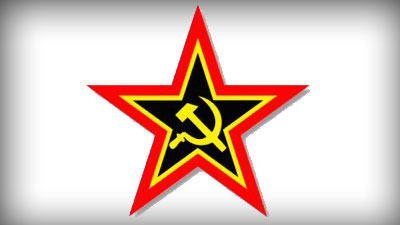JB Marks was a member of the ANC, a trade unionist and a Marxist-Leninist during a very critical period in the history of the country. Born to mix parentage in Ventersdorp, ‘JB’ Marks qualified as a teacher and threw himself into trade union and political work with enthusiasm and boundless energy.
A youthful Nelson Mandela remarked in the ‘Long Walk to Freedom’, that ‘his long close friendship with JB Marks was sparked by the 1946 strike of African mineworkers’ that ‘shaped his political development and direction of the struggle’.
“The mineworkers strike, in which 70 000 African miners along the Reef went on strike, affected me greatly. At the initiative of JB Marks, Dan Tloome, Gaur Radebe and a number of ANC labour activists, the African Mineworkers Union (AMWU) had been created in the early 1940s”, Mandela writes.
As president of the AMWU, ‘JB’ Marks lead and organised one of the largest such actions in South African history – mineworkers’ went on strike for a week and maintained their solidarity.
The state brutally suppressed the strike and arrested the leaders. After the strike, 52 men, including ‘JB’ Marks and Kotane, and many other communists, were arrested and prosecuted, first for incitement, then for sedition. It was a political trial, an effort by the state to show that it was not soft on the Red Menace.
“The year 1946”, writes Bunting, “… was to be a watershed in black politics in South Africa, dominated three big campaigns whose echoes were to reverberate for many years afterwards; the passive resistance campaign directed against General Smuts Asiatic Land Tenure and Indian Representation Bill, the resumed anti-pass campaign, and the great strike of African mineworkers which took place in August”.
“The miners’ strike and the court cases which followed it were a symptom both of the growing unity between the anti-government forces in South Africa, and the determination of the Smut’s government to smash them – a mission later undertaken with even more vindictiveness by the Nationalist government”, remarks Bunting.
JB Marks was a leading figure in the ANC having being president of the Transvaal and later treasurer-general, chairperson of the South African Communist Party (SACP), former president of the Transvaal Council of non-European trade unions and president of the African Mine Workers Union (AMWU). He found no contradiction in forging these ties to ensure that the struggle for national liberation and social emancipation in South Africa was based on the correct ideological-political lines.
“After listening to SP Bunting addressing a meeting of workers at a mine where he was employed, JB Marks joined the Communist Party in 1928 and devoted himself thenceforward to the fight for national and social emancipation, undeterred by the fierce hostility of white racialist towards the revolutionaries of our country”; observes an obituary delivered in August 11, 1972 at his funeral in Moscow.
Mandela also writes; “A friend once asked me how I could reconcile my creed of African nationalism with a belief in dialectical materialism”, expressing the interconnectedness of the struggle for national liberation and for social emancipation.
There is perhaps no man who symbolizes as much as he does all that is best in the glorious traditions of the South African working class
As chairperson of the Communist Party and a member of the National Executive Committee of the ANC, he played an indispensable role in helping to guide our whole liberation movement through one of its most difficult periods.
Together with others, ‘JB’ Marks was instrumental in organising and coordinating the Defiance Campaign of the 1950s. He was arrested and convicted under the suppression of Communist Act with Mandela and Sisulu from the ANC, Yusuf Dadoo, Yusuf Cachalia and Ahmed Kathrada from the South African Indian Congress (SAIC), but their sentence of nine months of hard labour was suspended.
‘JB’ Marks also survived a bullet whilst addressing in a gathering in Potchefstroom with Edwin Mofutsanya. Like many of his comrades at the time, he was subjected to numerous and repeated bans and restrictions on his activities and movements, but continued to operate underground until he was instructed by the ANC NEC to leave and join the headquarters of the External Mission in Tanzania in organising the resistance.
‘JB’ Marks was an outstanding internationalist and as chairperson of the SACP, he ardently supported the struggles of other oppressed peoples elsewhere in the world and promoted the unity of the international communist movement. He was an embodiment of the shared experiences of the oppressed and marginalised in our country and shining example of dedication to a cause as noble as the struggle for freedom from hunger, poverty and marginalisation.
‘JB’ Marks is among the modern pioneers in the struggle for national liberation and social emancipation. Together with Moses Kotane, as Dr Yusuf Dadoo – former chairperson of the SACP wrote; “There is perhaps no man who symbolizes as much as he does all that is best in the glorious traditions of the South African working class and national movement”.
Chris ‘Che’ Matlhako is the SACP’s head of international relations.
– By


